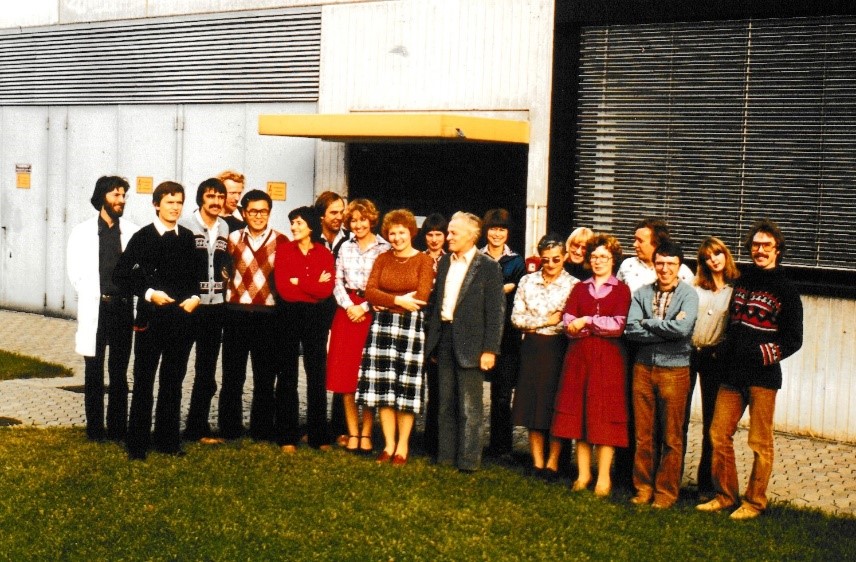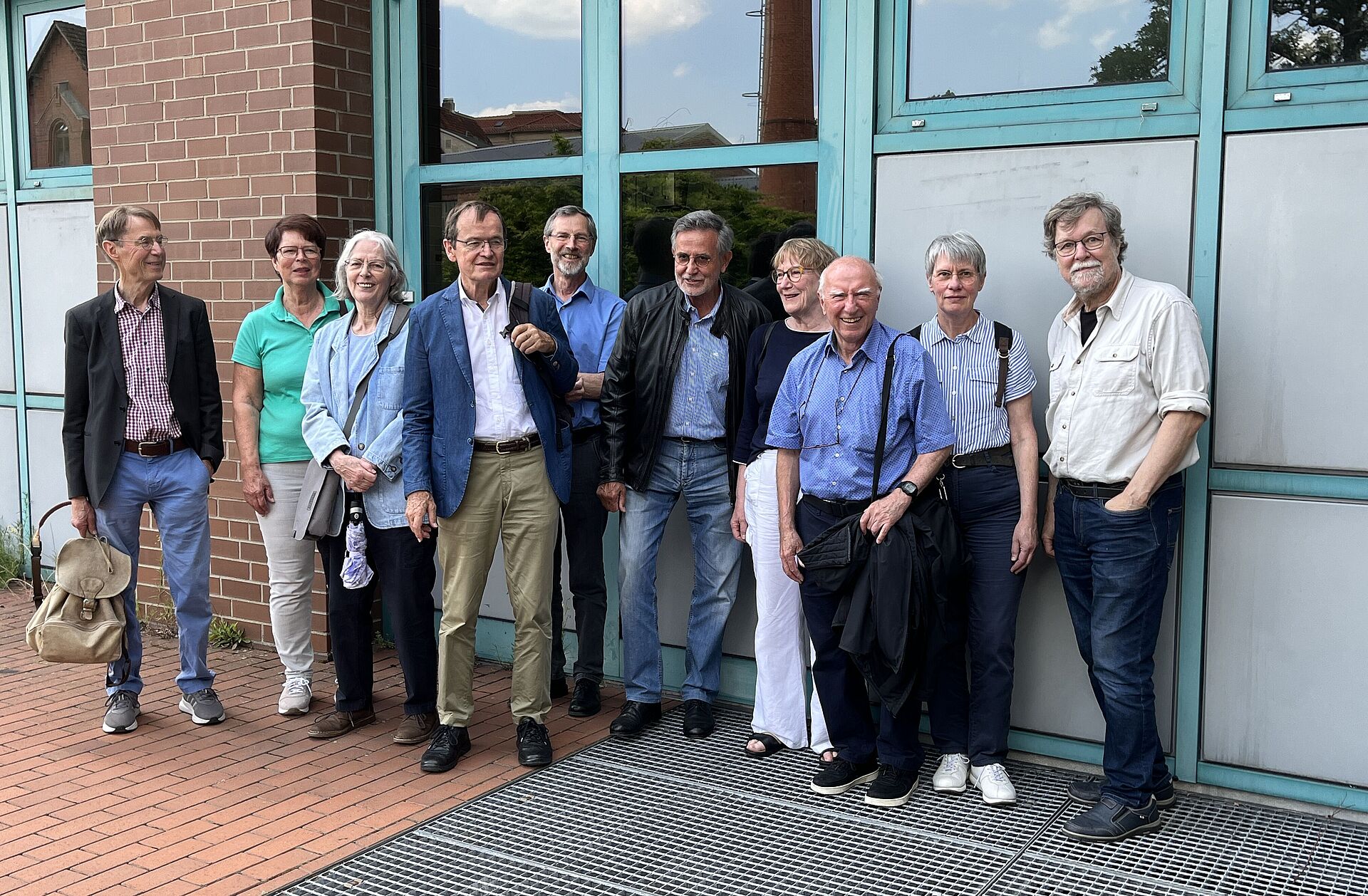Two years ago, the Technical University of Braunschweig celebrated 50 years of biotechnology with a big anniversary party. Now some of the first doctoral students from the 1970s and 1980s have returned to their alma mater. They completed their doctorates under Prof. Dr Fritz Wagner, the founder of the former Chair of Biochemistry and Biotechnology in 1972. In a group photo from 1980, we see Prof. Wagner surrounded by his colleagues on the grounds of the former Society for Biotechnological Research in Braunschweig-Stöckheim. And to the right, the group of alumni who came together on 8 June 2024.


The alumni were delighted to accept the invitation from Prof Dr Stefan Dübel, the current head of the Department of Biotechnology at the Institute of Biochemistry, Biotechnology and Bioinformatics. They listened intently to Dübel's presentation on the current status of antibody engineering - a fascinating research focus of the department. Some of them travelled long distances to attend: one alumna has lived in the USA for decades and travelled all the way from New York for the occasion. "I like coming back to Braunschweig to meet my old colleagues and friends and to catch up on how life as a "pensioner" has gone after my exciting time in Braunschweig and subsequent careers. Besides, I still have my family and friends in Germany, so I can combine the travel to Germany with another visit. I look forward to the "chatting" feeding the next two years... "do you remember ... and back then ... and, and, and," says Dr Elisabeth Grote-Holman.
During their scientific work at the chair, the alumni mainly focussed on the bioprocess technology of microbial cultures. Their work focused on the selective microbial degradation and conversion of sterols and steroids, the production of low-molecular biomolecules such as L-amino acids, riboflavin, citric acid and biosurfactants, as well as the characterisation of fungal cellulose-degrading enzymes. After successfully completing their doctorates - the first graduate graduated in 1974 - they took different career paths: some of them went into large-scale industry, others favoured smaller or medium-sized companies, and still others habilitated at the TU Braunschweig or at another university.
Since 2010, when the first of the 1970s doctoral students retired, the biotechnology alumni have met every two years in Braunschweig. The programme for these meetings always includes a visit to a current working group at TU Braunschweig, followed by a visit to a café in the city and a visit to a restaurant in the evening. There is always a lot to talk about.
Dr Ulrich Behrendt from Munich emphasises: "Friendships are a valuable asset: who doesn't like to cultivate them? They enrich my life, especially as contacts with former colleagues from my time at the University of Braunschweig, both in Braunschweig itself and over long distances, e.g. to Chile, the USA, Japan or Korea, have not been broken off over the past 52 years. Moving to other parts of Germany for professional reasons has also kept the connections to the biotech scene in Braunschweig alive on the basis of requests for lectures, assessments or consultations."
Apl. Prof. Dr. Siegmund Lang, one of the organisers of the meetings, emphasises the importance of these gatherings: "I have always enjoyed organising our alumni meetings together with Prof. Dr. Ulrike Schömer every two years since around 2010, because I have very close ties with my former colleagues. We experienced an exciting time together in the 1970s during the development of the Chair into the Institute of Biochemistry and Biotechnology; we also have fond memories of shared experiences outside the workplace. That's why we enjoy getting together, especially since the end of our careers. As I am still in contact with some of the active professors in the Faculty of Life Sciences, I have always been able to ensure that we start our meetings with a scientific section on current topics in biochemistry and biotechnology, and then continue talking shop in a café or restaurant or move on to private conversations."
With a lot of nostalgia and new scientific impulses, this meeting will certainly be remembered by all participants for a long time. Memories were refreshed, experiences were exchanged and friendships were cultivated - a wonderful opportunity to meet new people.